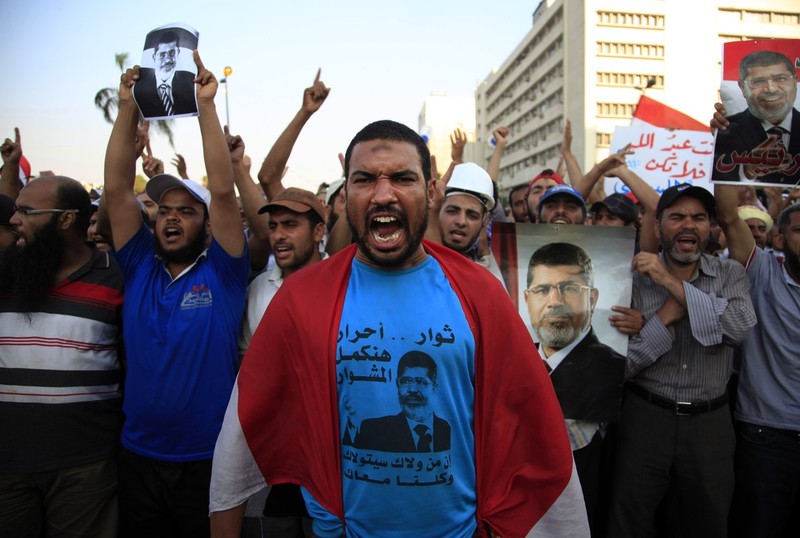America's true stake in Egypt.

As Egypt unravels, it has naturally called into question whether the U.S. should continue subsidizing the Egyptian Army. The basic premise of U.S. aid has been unchanged since the 1970s and was summed up nicely by a U.S. embassy cable released by WikiLeaks:
'President Mubarak and military leaders view our military assistance program as the cornerstone of our mil-mil relationship and consider the USD 1.3 billion in annual FMF as "untouchable compensation" for making and maintaining peace with Israel. The tangible benefits to our mil-mil relationship are clear: Egypt remains at peace with Israel, and the U.S. military enjoys priority access to the Suez Canal and Egyptian airspace.'
Leave aside whether it's really necessary to keep bribing Egypt's Army to stop it from doing what it is very unlikely to do in the first (start a new war with Israel) and focus on the only benefit directly related to American security and economic interests: passage through Suez.
Is that worth $1.5 billion a year and the enmity of some of the Egyptian people?
That's a tough call and one the Obama administration is undoubtedly wrestling with.
One way to help frame the question is to ask what would happen to passage rights through the canal if the U.S. did sever aid. Michael Rubin suggests that the hard currency generated by canal traffic is far too crucial to the country to risk. Others have noted that throughout Egypt's upheaval, operations at the Suez Canal have not been impacted. This seems to suggest that passage through the canal is simply too important to the Egyptian regime (any Egyptian regime) to become a pawn in a diplomatic showdown.
Of course, the U.S. could lose its priority access, which could slow future U.S. military operations in the region.
Another way to frame the question is to ask just what the consequences would be if the U.S. keeps the aid flowing. Perhaps some Egyptians would grow so resentful of U.S. support that they would join al-Qaeda or seek to harm U.S. interests. That has happened before, of course, but is this threat strong enough to over-ride the other interests stated above?
Ultimately, the money is more symbolic than anything else. It's insignificant to the U.S. budget, Egypt could survive without it and ending it is unlikely to irreparably harm vessel traffic through Suez. But it does buy the U.S. some measure of reassurance that a vital waterway will remain open to its vessels and East-West trade more generally. The real question Washington needs to answer is: is it happy with what it symbolizes?
(AP Photo)
